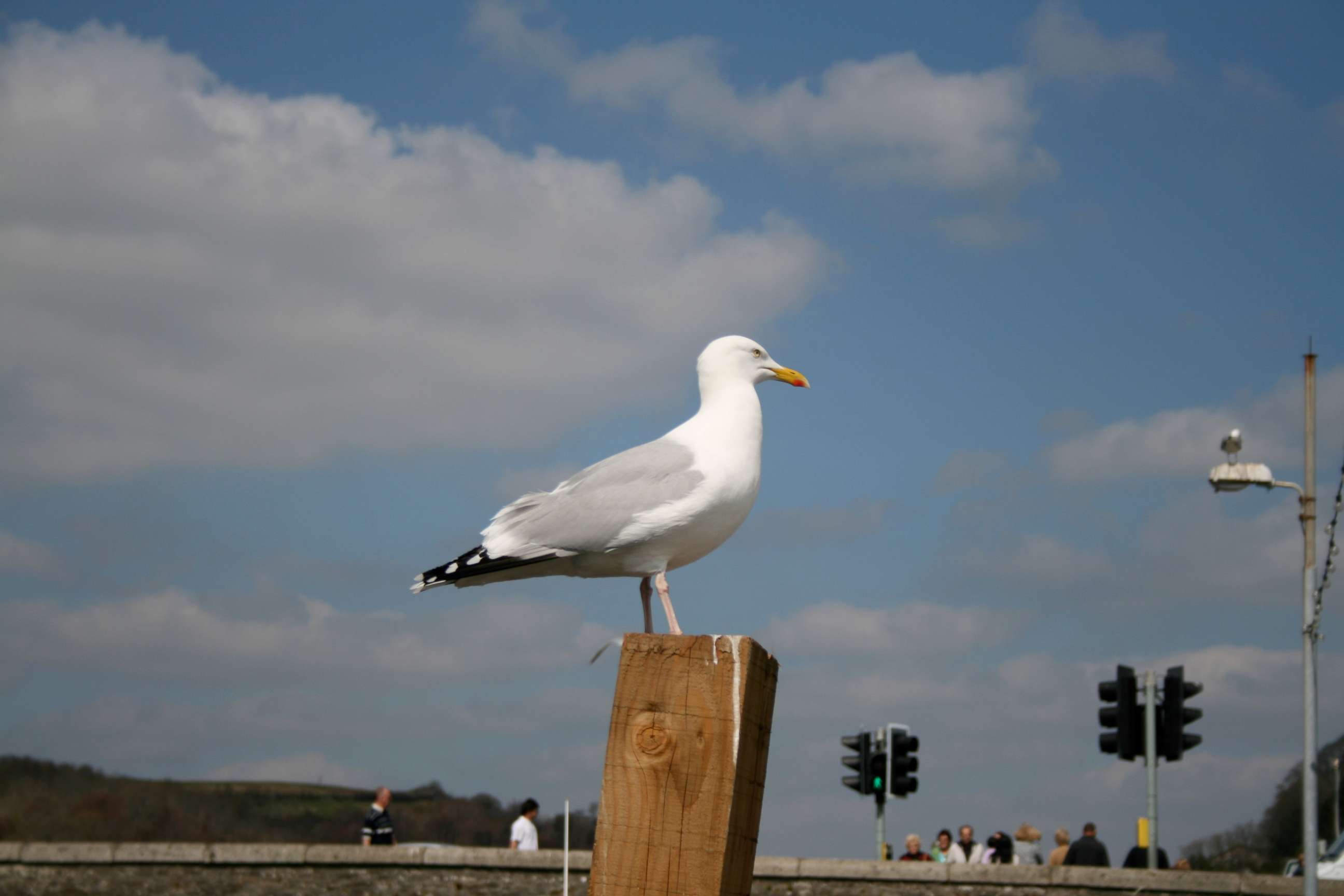Seagull staredown! Frosty stare keeps seaside scavengers away from your fries, study finds
Simply watching a seagull is enough to prevent it stealing food.
LONDON -- Opportunistic seagulls swooping in to steal food is a common hazard of summers on the coast. But protecting your lunch may be as easy as keeping your eyes on the seagull, a new study has found, and their reputation for aggression may be exaggerated.
Scientists at the University of Exeter in the U.K. found that herring gulls -- the U.K.’s most common species of seagull -- are gaze averse, meaning that they have a fearful response to being watched. Their research was published by the Royal Society.
When the scientists tried to tempt seagulls with a bag of fries, they found that the gulls were less likely to take the food when the researchers kept their eyes on them.
“It seems that just watching the gulls will reduce the chance of them snatching your food,” said senior author Dr. Neeltje Boogert.
Very few gulls even approached the team, the study's lead author, Madeleine Goumas, told ABC News.
“Gulls are often seen as aggressive and willing to take food from humans, so it was interesting to find that most wouldn’t even come near during our tests,” she said.
“It seems that a couple of very bold gulls might ruin the reputation of the rest,” Boogert added.

Goumas, who goes by the handle @Gull_Mad on Twitter, told ABC News that although gulls have a negative reputation, and that numbers are rising in urban areas, the population of herring gulls has massively declined across the U.K. Britain's Royal Society for the Protection of Birds, a conservation group, has put herring gulls on their red list, meaning that they need urgent conservation action.
Gulls have very good eyesight, said Goumas, but it’s not clear if they are really aware that humans are watching them. The behavior could be innate, or it could be learned from gulls’ experiences with human, according to Goumas.
The team of scientists is planning more research into this, and other ways in which gulls interact with humans in an urban environment.
Bold seagulls overall, however, seems to be a worldwide phenomenon.
Across the pond in Ocean City, New Jersey, resident Pep Bassett told ABC News how "one swooped right down, slapped me on the side of my head with his wing and took my doughnut." Seagulls have hurt a child in the past, according to Mayor Jay Gillian.
Suggestions to keep a beady eye on the birds is a less extreme solution than what Ocean City is trying this summer.
City officials there have resorted to releasing birds of prey to police the shoreline. Falcons, owls and hawks will fly in shifts over the boardwalk, not to hunt seagulls, but to intimidate them. If the trial is a success, the city will consider bringing them back next summer.



